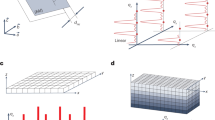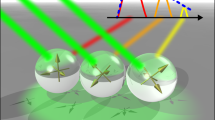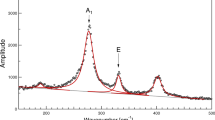Abstract
IT has long been recognised that angular measurements do not always carry one beyond a determination of the system, and that other methods of investigation are needed if the crystal is to be assigned to its class of symmetry. But different methods do not always give the same result, so that some principle of discrimination has to be adopted. In the past the principle universally applied has been that of greatest common measure, the crystal being correspondingly relegated to the highest class, the symmetry of which is common to the various symmetries observed (in most cases this leads to the lower of two observed symmetries, since the symmetry of one is generally wholly contained in that of the other). It must be noted that all class assignments are provisional and liable to modification (necessarily in the direction of lower symmetry) as new evidence is forthcoming.
This is a preview of subscription content, access via your institution
Access options
Subscribe to this journal
Receive 51 print issues and online access
$199.00 per year
only $3.90 per issue
Buy this article
- Purchase on Springer Link
- Instant access to full article PDF
Prices may be subject to local taxes which are calculated during checkout
Similar content being viewed by others
Author information
Authors and Affiliations
Rights and permissions
About this article
Cite this article
BARKER, T. X-Rays and Crystal Symmetry. Nature 112, 502–505 (1923). https://doi.org/10.1038/112502c0
Issue Date:
DOI: https://doi.org/10.1038/112502c0
Comments
By submitting a comment you agree to abide by our Terms and Community Guidelines. If you find something abusive or that does not comply with our terms or guidelines please flag it as inappropriate.



